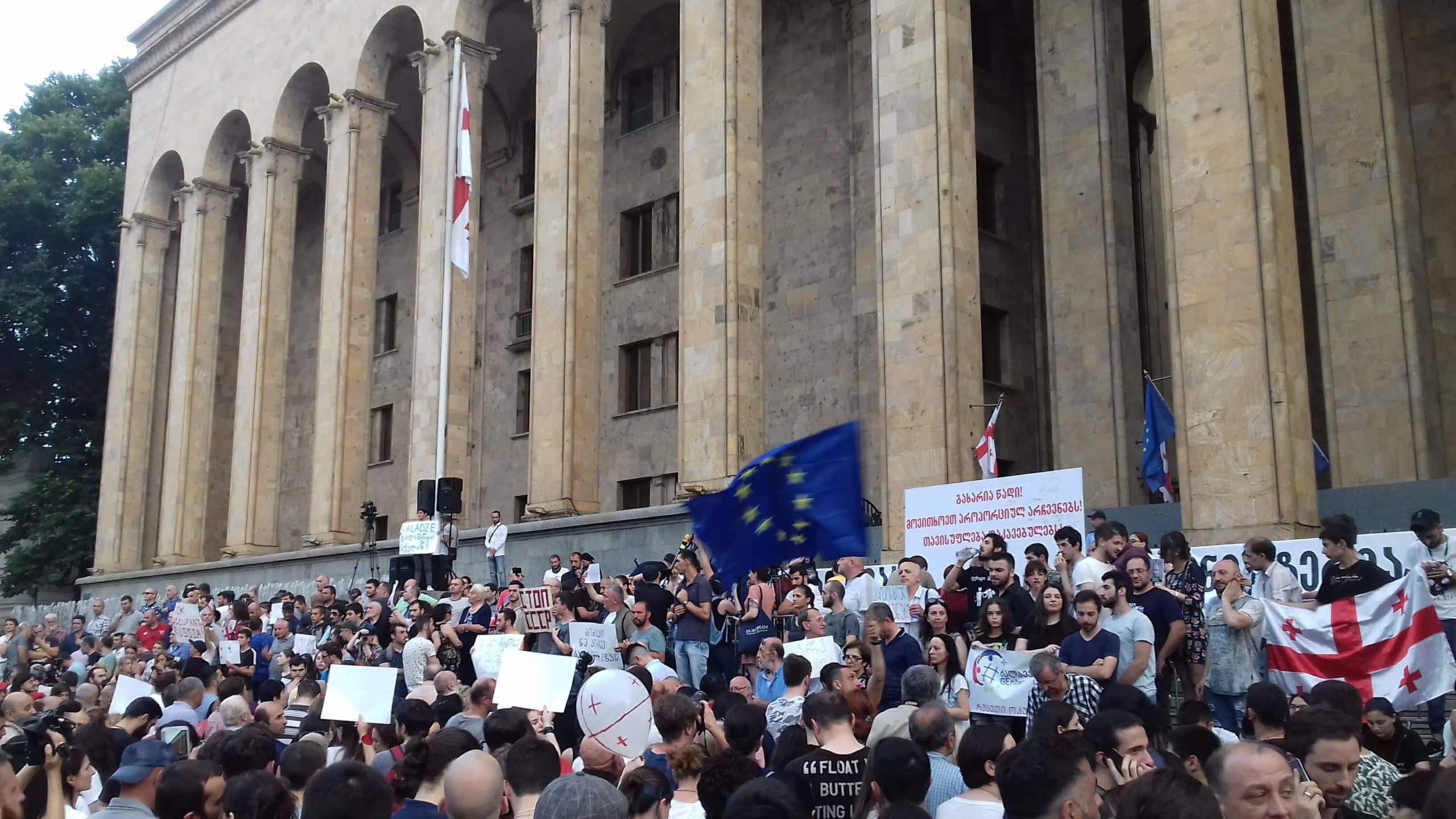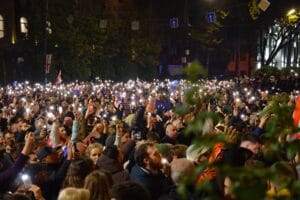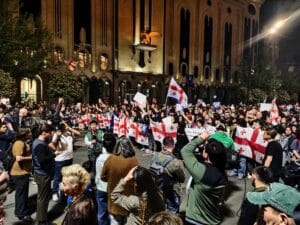In recent days opposition activists and politicians in Georgia have increased their protests in front of the parliament and sought support from the EU. All in an attempt to revitalize their anti-government campaign, which hit an all-time high after the Georgian parliament failed to pass a long awaited electoral law amendment on 17 November. In the past months the protests seemed to have calmed down and the opposition is desperate to give their movement a boost, as the opposition looks more united than ever before. As of 30 November, opposition parties were holding talks with the government to come with an agreement, eventually taking a time-out from 20 December until the new year. Protesters announced that they would block the entrance of the parliament till their demands for a new electoral law would be met. They were soon removed from the entrance but remained on the square in front of the parliament, which they were already occupying since June 2018. On 31 December authorities removed the makeshift camp of the protesters, arresting 10 of them, in order to make space for a New Year’s amusement park. The scale of the protests has declined over the months, with the tally of participants in the first protests reaching up to 7,000. While recent ones were reduced to up to 3,000 participants. This has led the ruling GD party to comment on the protests as a ‘storm in a teacup’, orchestrated by Saakashvili’s UNM party backed by lobbyist from the West.
Clashes in front of parliament
This makeshift New Year’s amusement park has sparked anger among street traders. Recently, the Tbilisi City Hall has ordered them to change the location of their stalls from Republic Square to the streets in front of the Parliament, in response many entrepreneurs refused to trade in their places. On 3 January, activists protested In front of parliament to express solidarity with the street traders and to voice their discontent with the removal of their tents. Civic activists of “It’s a shame” movement, as well as opposition politicians of United National Movement, European Georgia, Lelo for Georgia, Republican Party and others also protested outside the Parliament, condemning City Hall’s decision. The activists urged citizens not to take children to the entertainment area and claimed they will continue their demonstrations until their demands are met. Georgian activist Lasha Chkhartishvili was arrested for resisting the police on 3 January and received the largest fine ever imposed on an opposition member for this offense. Ucha Nanuashvili, a former Georgian Ombudsperson and a co-founder of the NGO “Human Rights Centre”, expressed his concern about the heavy fine imposed on the activist. This is a very dangerous trend: oppositionists are being fined more and more heavily … It’s obvious pressure by authorities on their political opponents,” he stated. On 5 January, opposition activists raised money to support fined merchants for not moving their stalls to the new location in front of the parliament.
Opposition establishes “ black list” intended for western partners
Meanwhile opposition parties have been working on a so-called black list, this list consists of persons who, in their perception, are involved in political persecutions of activists in Georgia. The party is established by the Multi-Party Political Commission, which is supported by most opposition parties.
On 5 January, a list of five persons who topped the list was made public, among them two prominent judges, a prosecutor, the deputy head of the police and the head of the Security Service in Tbilisi. With a representative of the party “Lelo”, Kakha Kojoridze, claiming that the top ten would be announced in a couple of days. According to the opposition, the list is intended to be transferred to Georgia’s partners in the West, to impose sanctions on the relevant individuals, like a fine or restriction of travel rights within the EU. Western partners have already mediated between the opposition and government, but look unlikely to impose sanctions, something which could weaken their positions as independent mediator between the two parties.
Government offers compromise
The government response has been characterized by excessive use of force against protesters, while on the other hand opening talks with opposition parties to end the current crisis. The two sides have met on four occasions, with the last one taking place on 20 November. This last session was highlighted by a rather generous offer of the Georgian Dream party, by some marked as a U-turn from their current position on the electoral issue. Parliamentary speaker Archil Talakvadze told the media that their new proposal, which saw the number of proportionally elected lawmakers rise from 77 tot 100, was a compromise which was reached after difficult negotiations within the party. Talakvadze argued that a fully proportional electoral system would cause instability in the country, referring to Israel as an example of a case where the transition to a fully proportional has restricted the formation of a government. The opposition didn’t agree with this compromise and talks were postponed. And as it stands the opposition representatives remain firm in their demand for a fully-proportional electoral system for the 2020 parliamentary elections. As does the Georgian Dream party in their battle to ensure their grip on the electoral system trough the mixed-voting system.
Sources: Civilgeorgia CaucasianKnot GeorgianJournal OCmedia Georgiatoday 1TV



